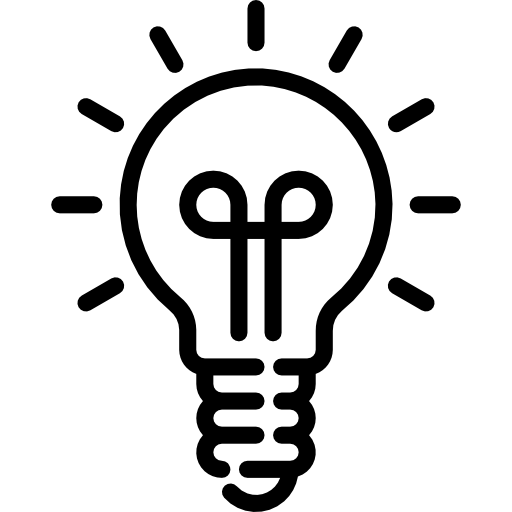Over-the-Counter OTC Equities Disclosure Library
Content
On the other hand, OTC (over-the-counter) refers to a decentralized market where buyers and sellers converse directly with each other online. Since OTC trades do not operate like regular exchanges, they are not subject to the same level otc trade of transparency and disclosure required for exchange-traded trades. This allows for greater discretion and privacy in trading, which can be especially important for large institutional investors.
Manage risk and maximize opportunities trading OTC with StoneX
Trading over-the-counter and exchange-traded derivatives is not suitable for all investors and involves substantial risk. StoneX Markets, LLC (“SXM”), a subsidiary of StoneX Group Inc., is a member of the National Futures Association and provisionally registered with the U.S. SXM’s products are designed only for individuals or firms who qualify under CFTC rules as an ‘Eligible Contract Participant’ (“ECP”) and who have been accepted as customers of SXM. Trading over-the-counter (“OTC”) products or “swaps” involves substantial risk of loss. This material does not constitute investment research and does not take into account the particular investment objectives, https://www.xcritical.com/ financial situations, or needs of individual clients or recipients of this material.
Who can benefit from trading over the counter with StoneX?
Additionally, because OTC equities can be more volatile than listed stocks, the price might vary significantly and more often. Exchange-listed stocks may be traded either on a stock exchange or OTC. OTC trading for both exchange-listed stocks and OTC equities can occur through a variety of off-exchange execution venues, including alternative trading systems (ATSs) and broker-dealers acting as wholesalers. OTC trading generally refers to any trading that takes place off an exchange.
Want to see how bitcoin and other digital assets fit into your portfolio?
Enter the over-the-counter (OTC) markets, where trading is done electronically. The over-the-counter market refers to securities trading that takes place outside of the major exchanges. There are more than 12,000 securities traded on the OTC market, including stocks, exchange-traded funds (ETFs), bonds, commodities and derivatives.
Differences Between the OTC Market and Stock Exchanges
To learn more about how these benefits may apply to your specific market view and risk management needs, please contact us. Transactions in OTC equities must be reported to the FINRA OTC Reporting Facility (ORF) for real-time public dissemination. FINRA Data provides non-commercial use of data, specifically the ability to save data views and create and manage a Bond Watchlist. A list of Equity ATSs that appear in the OTC Transparency data that either currently have a Form ATS on file with the SEC or did at one time.
If one of the parties chooses to default on their obligations, the other party suffers a significant loss. Most companies listed on OTCQX also appear on major exchanges abroad or may be on the verge of being listed on such exchanges as the NYSE or NASDAQ. In addition to financial standards, a listed company has to meet certain governance requirements, provide audited financial records, and comply with SEC regulations. The market for over-the-counter (OTC) securities is much like any other product. An interested buyer seeks out the product and has a maximum price they are willing to pay. The owner of the product has a minimum amount they are willing to accept.
The OTC market is where securities trade via a broker-dealer network instead of on a centralized exchange like the New York Stock Exchange. Over-the-counter trading can involve stocks, bonds, and derivatives, which are financial contracts that derive their value from an underlying asset such as a commodity. OTC markets offer a high degree of customization, enabling traders to negotiate and structure deals based on their specific needs. This flexibility allows for the creation of unique financial products or the adaptation of existing ones to align with individual risk appetites, investment goals, and prevailing market conditions.
Dealers can sometimes trade through the screen or over the electronic system. Some interdealer trading platforms allow automated algorithmic (rule-based) trading like that of the electronic exchanges. Otherwise the screens are merely informative, and the dealer must trade through the broker or call other dealers directly to execute a trade. OTC trading is commonly used for a variety of assets, including equities, debt securities, derivatives, and increasingly, cryptocurrencies. In the context of cryptocurrencies, OTC desks serve as intermediaries that facilitate large transactions, often referred to as “block trades,” between parties.
His mission is to educate individuals about how this new technology can be used to create secure, efficient and transparent financial systems. For more information on how LSEG uses your data, see our Privacy Statement. You can adjust your preferences at any time through the preference link in any electronic communication that you receive from us. With that said, it’s important to keep in mind that all investments involve risk and investors should consider their investments objectives carefully before investing. Our OTC desk specialises in trade and order management, providing best in class market access. This acknowledgement applies to all purchases of these products for all Self-Directed Accounts, and failure to provide this acknowledgement may result in your being prohibited from purchasing the product.
Unlike traditional exchanges where trades are visible and executed in a public order book, OTC trades are private and conducted off-exchange. This means that the terms of the trade, including the price and quantity of the asset, are negotiated directly between the buyer and seller. A stock exchange has the benefit of facilitating liquidity, providing transparency, and maintaining the current market price. The foreign exchange (forex) market is the largest and most liquid financial market globally. Unlike stocks or commodities, forex trading occurs only over-the-counter (OTC). This decentralized nature allows for greater flexibility in transaction sizes.
OTCQX is the highest tier, which is reserved for established companies and has substantial financial disclosure requirements. OTCQB is designed for smaller companies, but they must not be in bankruptcy. The Pink level is now an open market with no financial disclosure or reporting requirements.
OTC trading is characterized by a higher degree of privacy and confidentiality compared to traditional exchange trading. This feature is particularly attractive for large-scale trades where the parties involved may seek to avoid market disruption or prefer anonymity in their transactions. On an exchange, only formalized companies with perfect quality and quantity are traded, whereas, in OTC markets, contracts are tailored to meet both the buyer’s and seller’s agreed needs. Exchange refers to a trade center, a company or organization that operates a market where shares of companies listed on it are bought and sold by participants.
Mega Investments, a prominent investment firm, contacts brokers specializing in OTC securities. They inquire about the availability of Green Penny shares and receive quotes from different market makers. One market maker, OTC Securities Group, offers to sell 50,000 shares at $0.85 per share. Another market maker, Global Trading Solutions, offers to sell a smaller block of 10,000 shares at $0.90 per share.
Dealers can contact other dealers directly so that a trader can call a dealer for a quote, hang up and call another dealer and then another, surveying several in a few seconds. An investor can make multiple calls to the dealers to get a view of the market on the customer side. Contrary to trading on formal exchanges, over-the-counter trading does not require the trading of only standardized items (e.g., clearly defined range of quantity and quality of products).
- If you’re seeking to sell your OTC equities, you might find yourself out of luck because you simply can’t find a buyer.
- The OTCBB is a place for broker-dealers to make offers to buy and sell equity of companies that report to the SEC, but are not listed on the stock exchange.
- The company was first established in 1913 as the National Quotation Bureau (NQB).
- These must be held by a minimum of 2,200 shareholders and the minimum share price must be $4.00.
- All transactions happen through market makers rather than individual investors.
Because of the nature of the market, it is quite risky to trade on since investors can easily be scammed. OTC trading is a decentralized process where two parties negotiate the terms of trade directly with each other. The parties agree on the trade’s price, size, and settlement date of the underlying asset or instrument. Participants in OTC trading may include individuals, banks, hedge funds, or any other financial institutions. Most of the companies that trade OTC are not on an exchange for a reason.
Their listing fees can go up to $150,000, depending on the size of the company. It’s a network of over 100 broker-dealers with headquarters in New York. The group prices and trades a vast range of securities and markets on the OTC markets platform. The OTC Markets Group provides price and liquidity information for almost 10,000 OTC securities. It operates many of the better known networks, such as the OTCQX Best Market, OTCQB Venture Market and Pink Open Market. It consists of stocks that do not need to meet market capitalisation requirements.
The liquidity on OTC markets is usually low since most of the assets listed are not traded often. This is accompanied by the difficulty of buying and selling large quantities of such digital assets and significant price volatility. Therefore, sufficient information about the company or its digital assets is not readily available to investors. Although the grey market is not also accessible to investors, trading is often conducted through unregistered dealers and is not subject to regulatory oversight.






